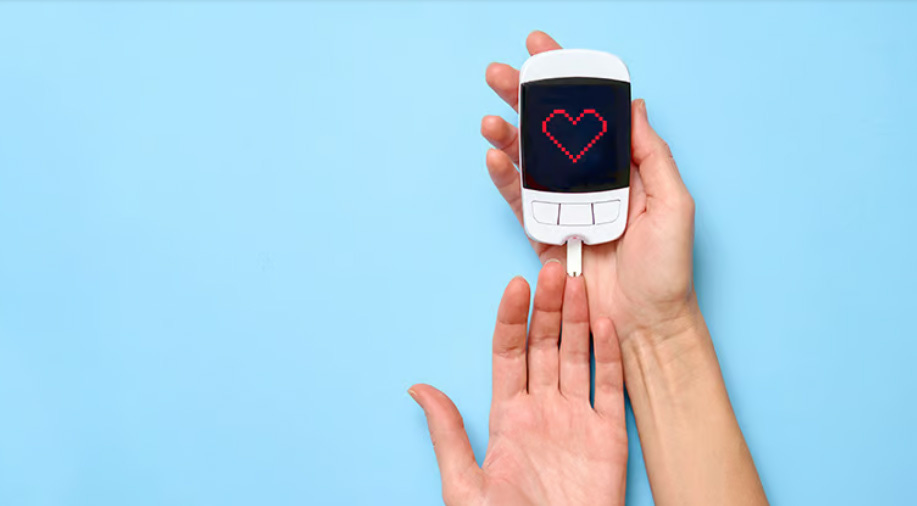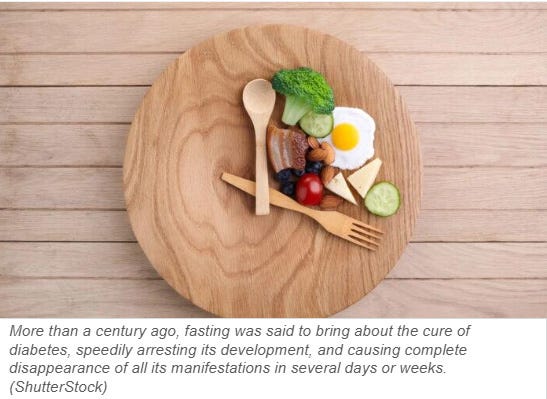Diabetes Better Treated with Intermittent Fasting Than Drugs — Study
While not eating yourself into disease is safer and more effective than drugs, it also doesn't help the pharmaceutical industry's profitability or stock price.
By Sheramy Tsai
September 7, 2024
Intermittent fasting ‘may serve as an effective initial lifestyle intervention‘ for patients with Type 2 diabetes—potentially eliminating antidiabetic drugs.
A study published in June indicates that managing eating times within a narrow window each day, referred to intermittent fasting, is more effective at managing blood sugar regulation in diabetics than pharmaceutical drugs.
“In this randomized clinical trial of 405 adults, the 5:2 MR approach achieved better glycemic control at 16 weeks compared with metformin and empagliflozin,” the study said in the ‘Findings’ section.
While drugs offer a quick and easy solution, albeit with side effects, intermittent fasting involves a lifestyle change.
“The 5:2 MR approach may serve as an effective initial lifestyle intervention instead of antidiabetic drugs for patients with type 2 diabetes,” the study said in the ‘Meaning’ section.
Interestingly, the researchers didn’t even recommend daily intermittent fasting to reap the rewards, as just two non-consecutive days a week were seen to yield results.
“An intermittent fasting plan consisting of 2 non-consecutive fasting days and 5 days of habitual intake per week and meal replacement diet (5:2 MR) could provide additional benefits to patients with type 2 diabetes,” the study said in the ‘Importance’ section.
While managing mealtimes is more effective and comes without risk of side effects, it also doesn’t turn a profit for big pharmaceutical companies.
“This randomized clinical trial of Chinese adults with overweight or obesity and with early type 2 diabetes found that 5:2 MR could improve glycemic outcomes and weight loss in the short term compared with metformin or empagliflozin, making it a promising initial intervention and early management for type 2 diabetes,” the study said in the ‘Conclusions and Relevance’ section.
If a diabetic overcomes their disease, they also no longer benefit from the pharmaceutical industry.
A previous study demonstrated how a calorie-restricted diet can cause diabetes to go into remission, effectively causing the pharmaceutical companies to lose a customer.
“Participants between ages 38 and 72 years with a duration of T2D of 1 to 11 years, a body mass index (BMI) of 19.1 to 30.4, 66.7% male, and antidiabetic agent use and/or insulin injection were randomly allocated at a ratio of 1:1 to the Chinese Medical Nutrition Therapy (CMNT) or control group,” the study said in the ‘Results’ section.
“The primary outcome was diabetes remission, defined as a stable glycated hemoglobin A1c (HbA1c) level of less than 48 mmol/mol (< 6.5%) for at least 3 months after discontinuing all antidiabetic medications.
The secondary outcomes included HbA1c level, fasting blood glucose level, blood pressure, weight, quality of life, and medication costs. We conducted a 12-month follow-up to assess the continuation of remission.”
“This study demonstrated the clinical efficacy of CMNT in achieving diabetes remission for at least 1 year,” the study said in the ‘Conclusion’ section.






